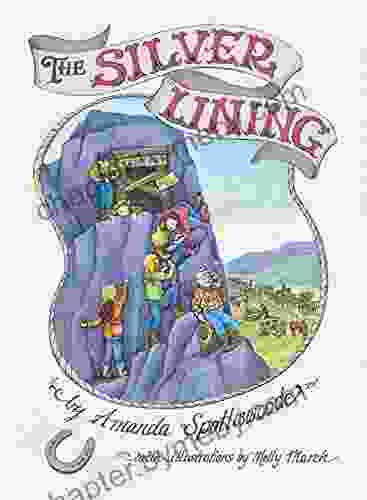Late Talking Children: Symptom or Stage? Unraveling the Enigma of Speech and Language Development

The ability to communicate is a fundamental human trait that connects us with the world around us. When children are late to develop speech and language, it can be a source of great concern for parents. But is late talking always a symptom of a disFree Download, or is it simply a variation of normal development?
4.6 out of 5
| Language | : | English |
| File size | : | 577 KB |
| Text-to-Speech | : | Enabled |
| Screen Reader | : | Supported |
| Enhanced typesetting | : | Enabled |
| Word Wise | : | Enabled |
| Print length | : | 251 pages |
Understanding the Spectrum of Speech and Language Development
Every child develops at their own pace, and speech and language acquisition is no exception. Some children start talking early, while others take a little longer. The American Speech-Language-Hearing Association (ASHA) suggests the following general milestones for speech and language development:
- 12 months: Says single words (e.g., "mama," "dada")
- 18 months: Uses simple sentences (e.g., "I want book")
- 2 years: Has a vocabulary of at least 50 words
- 3 years: Can talk in sentences of 3-4 words
- 4 years: Can tell stories and use complex sentences
It's important to note that these are just general guidelines. Some children may reach these milestones earlier or later. If you're concerned about your child's speech and language development, it's always a good idea to consult with a speech-language pathologist.
Late Talking: Symptom or Stage?
Not all late talking children have a speech or language disFree Download. Some children are simply late bloomers who eventually catch up with their peers. However, there are certain red flags that may indicate a more serious problem, such as:
- Your child does not make eye contact or respond to your voice
- Your child does not babble or make sounds
- Your child has difficulty understanding simple instructions
- Your child's speech is unclear or unintelligible
- Your child has trouble expressing their thoughts and feelings
If you're concerned about any of these red flags, it's important to seek professional help as soon as possible. Early intervention is crucial for children with speech and language disFree Downloads.
Causes of Late Talking
The causes of late talking can be varied and complex. Some of the most common include:
- Genetic factors: Some children are simply born with a predisposition to late talking.
- Environmental factors: Children who are exposed to less language input or who have difficulty hearing may be more likely to experience late talking.
- Developmental delays: Children with developmental delays may also have difficulty with speech and language.
- Medical conditions: Certain medical conditions, such as hearing loss or autism, can also lead to late talking.
The Importance of Early Intervention
If your child is late talking, it's important to seek professional help as soon as possible. Early intervention can help your child catch up with their peers and improve their speech and language skills. Speech-language pathologists can provide a variety of services, such as:
- Assessment: Evaluating your child's speech and language skills to determine the cause of the delay
- Therapy: Providing individualized therapy to help your child develop their speech and language skills
- Education: Teaching you and your family how to support your child's speech and language development
Parenting Strategies for Late Talking Children
In addition to professional help, there are a number of things you can do at home to help your late talking child. These include:
- Talk to your child: Even if your child is not talking yet, talk to them as much as possible. Describe what you're ng, sing songs, and read stories.
- Listen to your child: Try to understand what your child is trying to communicate, even if they're not using words.
- Provide opportunities for communication: Give your child plenty of opportunities to interact with other people, such as siblings, friends, and caregivers.
- Be patient and encouraging: It's important to be patient and encouraging with your late talking child. Let them know that you love them and that you're proud of their progress.
Remember, late talking is not always a cause for concern. However, if you're concerned about your child's speech and language development, it's important to seek professional help as soon as possible. With early intervention and support, your late talking child can reach their full potential.
Additional Resources
* [American Speech-Language-Hearing Association (ASHA)](https://www.asha.org/) * [National Institute on Deafness and Other Communication DisFree Downloads (NIDCD)](https://www.nidcd.nih.gov/) * [The Hanen Centre](https://www.hanen.org/) * [Books on Late Talking Children](https://www.Our Book Library.com/s?k=late+talking+children+books)
4.6 out of 5
| Language | : | English |
| File size | : | 577 KB |
| Text-to-Speech | : | Enabled |
| Screen Reader | : | Supported |
| Enhanced typesetting | : | Enabled |
| Word Wise | : | Enabled |
| Print length | : | 251 pages |
Do you want to contribute by writing guest posts on this blog?
Please contact us and send us a resume of previous articles that you have written.
 Book
Book Novel
Novel Page
Page Chapter
Chapter Text
Text Story
Story Genre
Genre Reader
Reader Library
Library Paperback
Paperback E-book
E-book Magazine
Magazine Newspaper
Newspaper Paragraph
Paragraph Sentence
Sentence Bookmark
Bookmark Shelf
Shelf Glossary
Glossary Bibliography
Bibliography Foreword
Foreword Preface
Preface Synopsis
Synopsis Annotation
Annotation Footnote
Footnote Manuscript
Manuscript Scroll
Scroll Codex
Codex Tome
Tome Bestseller
Bestseller Classics
Classics Library card
Library card Narrative
Narrative Biography
Biography Autobiography
Autobiography Memoir
Memoir Reference
Reference Encyclopedia
Encyclopedia Michael Sloan
Michael Sloan Matt Weiland
Matt Weiland Nicolai J Foss
Nicolai J Foss Martin Pollizotto
Martin Pollizotto Mary Frances Kennedy Fisher
Mary Frances Kennedy Fisher Mel Gordon
Mel Gordon Richard Louv
Richard Louv Michael Psellus
Michael Psellus Moss Hart
Moss Hart Megan Pugh
Megan Pugh Peter Slevin
Peter Slevin Michael Chorost
Michael Chorost Thomas J Sargent
Thomas J Sargent Miles Orvell
Miles Orvell Rae Rankin
Rae Rankin Maureen Sherry
Maureen Sherry Susan Cheever
Susan Cheever Thomas Penn
Thomas Penn Patrick K O Donnell
Patrick K O Donnell Michael Saylor
Michael Saylor
Light bulbAdvertise smarter! Our strategic ad space ensures maximum exposure. Reserve your spot today!
 Shawn ReedFollow ·6.8k
Shawn ReedFollow ·6.8k Aubrey BlairFollow ·17.6k
Aubrey BlairFollow ·17.6k Tom ClancyFollow ·11.6k
Tom ClancyFollow ·11.6k Reginald CoxFollow ·10.6k
Reginald CoxFollow ·10.6k Julio Ramón RibeyroFollow ·14.8k
Julio Ramón RibeyroFollow ·14.8k Edmund HayesFollow ·8.1k
Edmund HayesFollow ·8.1k Chance FosterFollow ·14.1k
Chance FosterFollow ·14.1k Gustavo CoxFollow ·17.4k
Gustavo CoxFollow ·17.4k

 Henry James
Henry JamesCold War Fighter Pilot Story: A Captivating Tale of...
Enter the Cockpit of...

 Rudyard Kipling
Rudyard KiplingYour Body Your Baby Your Choices: The Essential Guide to...
Pregnancy and...

 Fabian Mitchell
Fabian MitchellMichelle Obama: An Intimate Portrait - A Must-Read for...
Michelle Obama is a prominent figure in...

 Juan Butler
Juan ButlerUncover the Secrets of the Dead Land Warshawski Novels
Prepare to delve...
4.6 out of 5
| Language | : | English |
| File size | : | 577 KB |
| Text-to-Speech | : | Enabled |
| Screen Reader | : | Supported |
| Enhanced typesetting | : | Enabled |
| Word Wise | : | Enabled |
| Print length | : | 251 pages |
















